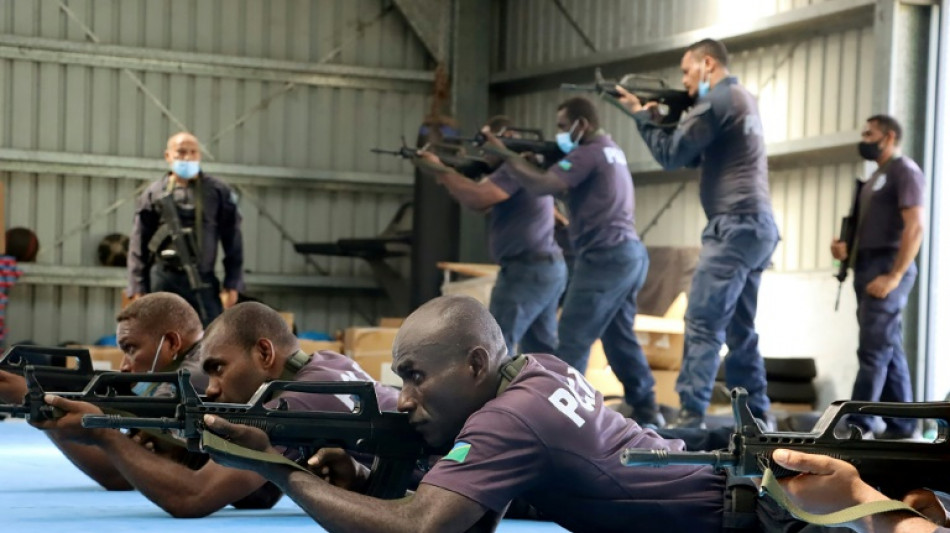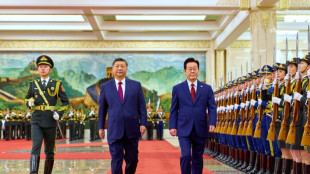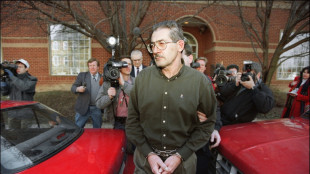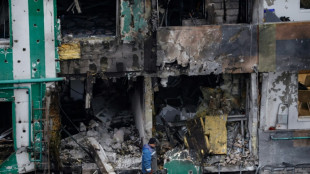

Solomons signed China security pact 'with our eyes wide open': PM
The Solomon Islands signed a security pact with China with its "eyes wide open", the Pacific nation's prime minister said Wednesday, despite strong US and Australian opposition to the deal.
Prime Minister Manasseh Sogavare said it was an "honour and privilege" to tell parliament the agreement had been signed by officials in Honiara and Beijing "a few days ago".
The deal, announced Tuesday by Beijing, has faced sharp criticism from the United States and Australia, which fear the pact could lead to China gaining a military foothold in the South Pacific.
Sogavare said his government had signed the deal "with our eyes wide open" but declined to say when the signed version would be made public.
A draft of the deal sent shockwaves across the region when it was leaked last month, particularly measures that would allow Chinese naval deployments to the Solomon Islands, which lies less than 2,000 kilometres (1,200 miles) from Australia.
The broad wording of the draft prompted a flurry of diplomatic overtures from Washington and Canberra to prevent it from being signed -- including a last-ditch visit from Australia's Pacific minister -- but they were ultimately unsuccessful.
The Solomon Islands and China have been moving closer in recent years, with Sogavare's government severing ties with Taiwan in September 2019, just days before its Pacific neighbour Kiribati followed suit in recognising Beijing.
- 'Little Cuba' -
Australia's Prime Minister Scott Morrison faced a barrage of questions about his handling of the Solomon Islands as news of the deal broke during a closely fought federal election campaign.
Morrison said he would visit the Pacific nation "at the first opportunity" but rejected criticism that he or Foreign Minister Marise Payne should have travelled to the Solomons to personally lobby against the deal.
Morrison added that Australia had to respect decisions made by regional neighbours and said he had "spent countless hours in meetings with Pacific Island leaders".
But Morrison's deputy, Barnaby Joyce, struck a different tone, telling reporters the deal would enable China to set up a military base in the Solomon Islands, which has a population of less than 800,000.
"We don't want a 'little Cuba' off our coast," he said.
Sogavare has previously said there was "no intention whatsoever... to ask China to build a military base in the Solomon Islands".
The deal was signed just days before senior US National Security Council official Kurt Campbell is due to arrive in the Pacific nation for high-level talks.
The United States has promised to reopen its embassy in the Solomon Islands, which has been closed since 1993.
- 'Deal rushed through' -
Mihai Sora from the Sydney-based Lowy Institute think tank said it was "almost certain the deal was rushed through" ahead of Campbell's visit.
He said there was very little that Australia could have done to stop the deal, given it was "personal for Sogavare".
But, Sora added: "I think he is honest when he says he doesn't want a Chinese military base in the Pacific."
Last November, protests against Sogavare's rule sparked violent riots in the Solomon Islands' capital, during which the city's Chinatown was torched.
While the unrest was partly fuelled by poverty, unemployment and inter-island rivalries, anti-China sentiment also played a role.
P.Mathieu--JdB



